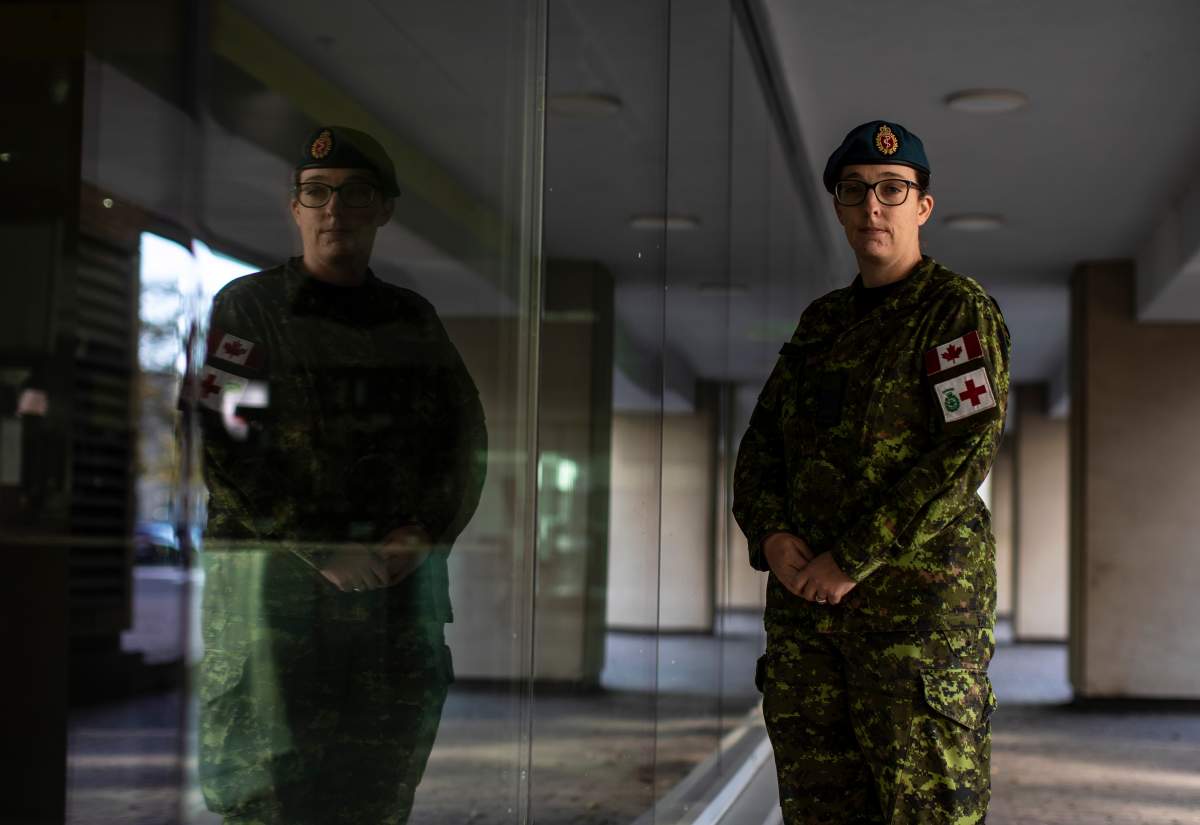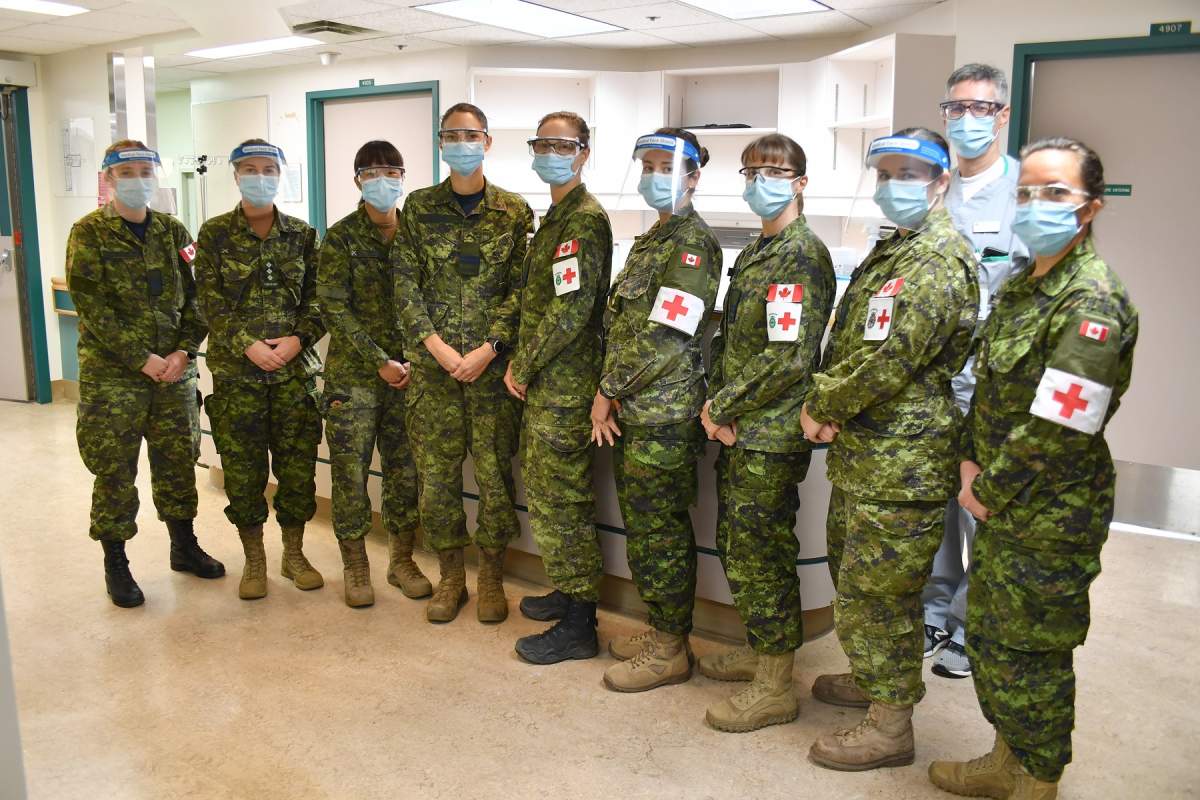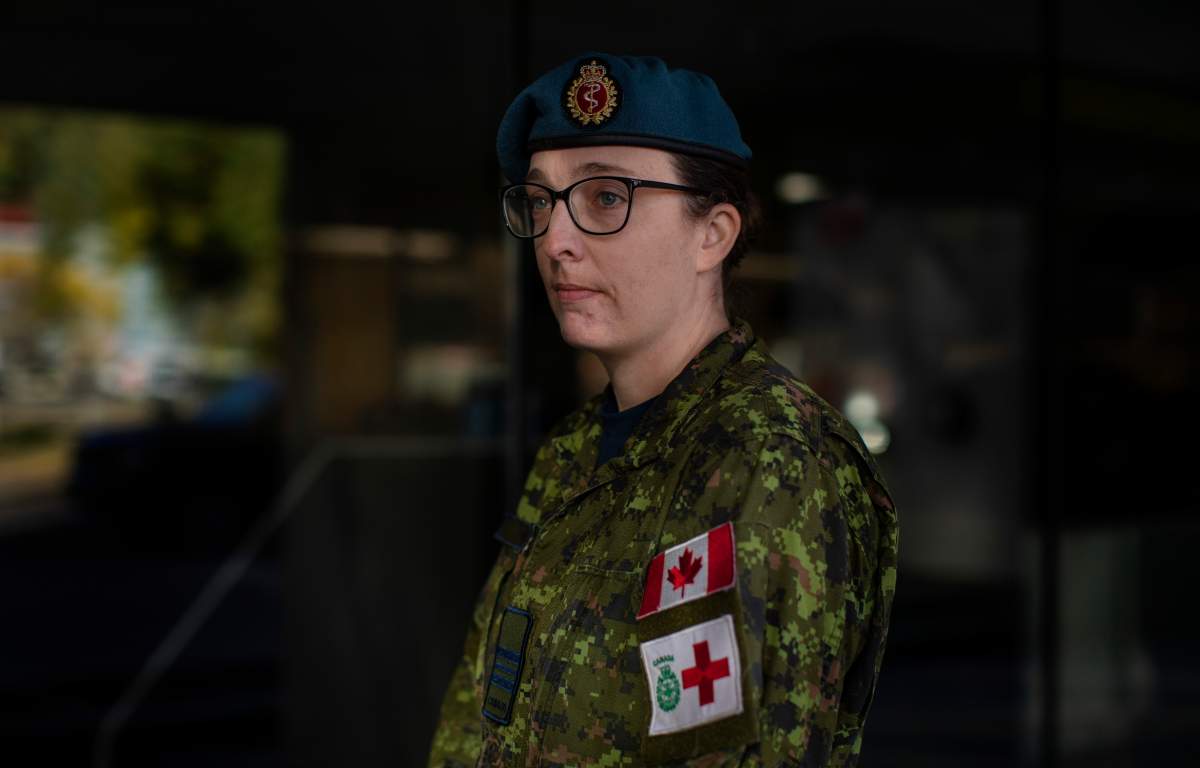A senior military nurse who has been deployed to Alberta to help overworked hospital staff caring for COVID-19 patients says she hopes to see the day when people’s smiling faces will replace masks, and family and friends will be able to gather safely.

Maj. Amy Godwin, 38, is leading a team of eight nurses as part of the Canadian Armed Forces Operation LASER at Edmonton’s Royal Alexandra Hospital.
“The province of Alberta requested Canadian Armed Forces (help) in the COVID surge that is currently ongoing,” said Godwin during an interview in the lobby of the hotel where she’s staying for a month with her team.
“This is why we’re here.”
She asked that the name of the hotel not be published due to safety concerns.
There are more than 18,000 active cases of COVID-19 in Alberta, down from a peak of about 22,000.

Get weekly health news
While the number of people in hospital and ICU admissions remain at all-time highs, hospitalizations, cases and critical care patients have been either plateauing or receding slightly.
Public Safety Canada has said the Canadian Red Cross is also planning to send up to 20 medical professionals, some with intensive care experience, to augment or relieve staff.
“There are no longer any hospitals in the Canadian Armed Forces so … for our nurses to get acute and critical experience they need, we work in partnership with other civilian hospitals,” said the uniformed Godwin.
“So these nurses have had exposure to COVID patients over the pandemic, and they’re well trained and ready to support Alberta through this time.”
Godwin said she and the other nurses who have been deployed from across the country, including Ontario and Nova Scotia, had their first orientation this week and will be working until Oct. 31.

The military and Alberta Health Services will then reassess to decide whether the nurses should stay. If they are asked to remain, Godwin said she will be happy to do so.
“If you’re on a mission and it gets extended, the first course of action would be those members to stay versus bringing in new members because that would require significant orientation … so ideally the team that is here would stay.”
Godwin, who lives in Ottawa with her husband and two children, said all Canadians are tired of the pandemic, but she wouldn’t exactly say she is exhausted.
“After … you go back to your families, (that’s) when you maybe feel that fatigue more. But when you’re here … you just do what you need to do.
“That’s my mentality here.”
Godwin, who previously worked at the Role 3 Multinational Hospital at Kandahar Airfield in Afghanistan, said her nurses will be working days and nights for 12-hour shifts.
She said she couldn’t respond to questions about the state of Alberta’s hospitals, which have invoked some aspects of triaging patients.
She added that she supports vaccines, although that’s not what she and her colleagues are here for.
“It’s not part of our mission and we’re not going to be pursuing that in any way.”
Albertans have been very welcoming, she said, even though she has only left the hotel and hospital to get takeout food since she arrived five days ago.
She said, like all Canadians, the pandemic has touched her life, but going through the same challenges as others makes her feel connected to them and helps her maintain her mental well-being at work.
“One key piece for health-care providers during this is to understand they’re not alone. There’s other people going through it. Communicate and (don’t) be ashamed if there’s been a hard day.”
— With files from Caley Ramsay, Global News






Comments
Want to discuss? Please read our Commenting Policy first.